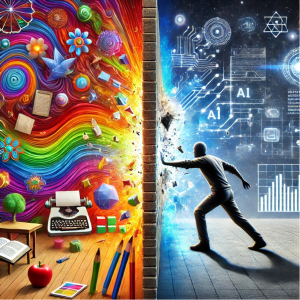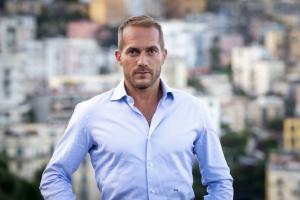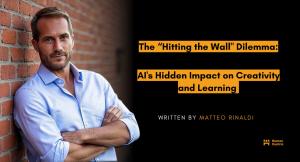AI and the 'Hitting the Wall' Dilemma: Exploring Its Hidden Impact on Creativity

The Contrast of AI and Creativity: a dynamic interplay between traditional creativity and the emerging influence of artificial intelligence, highlighting the struggle for human innovation in a tech-driven world
Exploring how AI's efficiency may undermine creativity and personal growth, Matteo Rinaldi warns against losing the value of struggle in a tech-driven world.
As AI continues to shape the landscape of various industries, Rinaldi highlights its dual role in enhancing productivity and potentially diminishing critical cognitive skills. "The benefits of generative AI are significant," he writes, acknowledging how it streamlines tasks and generates creative content. However, he warns that a growing reliance on AI could lead to a decline in essential problem-solving abilities and personal growth opportunities.
The concept of the “Hitting the Wall Dilemma” is introduced as a phenomenon observed among young professionals. Reflecting on his own educational experiences, Matteo recalls the challenges he faced in learning languages without the aid of technology. "Learning a new language doesn’t just teach vocabulary—it rewires our brains, helping us think in new ways," he emphasises. With AI's simultaneous translation capabilities, he fears that future generations may miss out on these transformative learning experiences.
The article further discusses the implications of AI on creativity. Genuine creativity is akin to a muscle that requires exercise and struggle to develop. "AI makes it easy to come up with creative ideas, but it’s like lifting light weights at the gym—without the struggle, you don’t build real strength," he explains. As more individuals depend on AI for brainstorming and creative work, there is a risk that ideas will become homogenised, lacking the uniqueness that arises from personal effort and iteration.
A Deloitte article is cited, emphasising AI's inability to replicate the curiosity and empathy essential for imaginative thinking. "This involves the drive to explore, to craft narratives, and to collaborate—work that requires thinking like a researcher and asking the right questions, not just delivering on preprogrammed objectives," he notes.
To further underscore his point, he engaged with AI, asking ChatGPT about the potential downsides of increased AI use. The response echoed his concerns, warning that dependence on these systems could lead to a decline in critical thinking and other human competencies. This highlights the pressing need to balance AI's advantages with a commitment to maintaining cognitive skills.
Matteo concludes with a call to action for marketers and professionals alike. "In a world where AI is becoming more pervasive, we must not lose our willingness to struggle," he urges. Emphasizing the importance of resilience and creativity, he advocates for a balanced approach to AI use, one that empowers individuals rather than shields them from life's challenges.
"Let’s use AI to empower ourselves, not to shield ourselves from life's challenges," he states. "In doing so, we can ensure that as AI continues to evolve, we do too—becoming not just more efficient, but more thoughtful, more mentally agile, and ultimately, better humans."
For more insights from Matteo Rinaldi, read the full article here.
About the Author
Matteo is the co-founder of Human Centric Group and a graduate of Luiss University with a Master's in Marketing Management from Bocconi. He began his marketing career at L'Oréal before moving to Coca-Cola HBC’s commercial department. In 2020, he co-founded Human Centric Group, working with global clients like Danone, Carlsberg, Mitsubishi, and PepsiCo across 20+ countries. He is also an Adjunct Professor at Luiss Business School and the author of two books, including the best-seller Human Centric Marketing and Tribal Mindset, both published by Franco Angeli.
Media Enquiries
HUMAN CENTRIC GROUP LTD
+442036934480 ext.
community@humancg.com
Visit us on social media:
LinkedIn
Instagram
TikTok
Legal Disclaimer:
EIN Presswire provides this news content "as is" without warranty of any kind. We do not accept any responsibility or liability for the accuracy, content, images, videos, licenses, completeness, legality, or reliability of the information contained in this article. If you have any complaints or copyright issues related to this article, kindly contact the author above.


